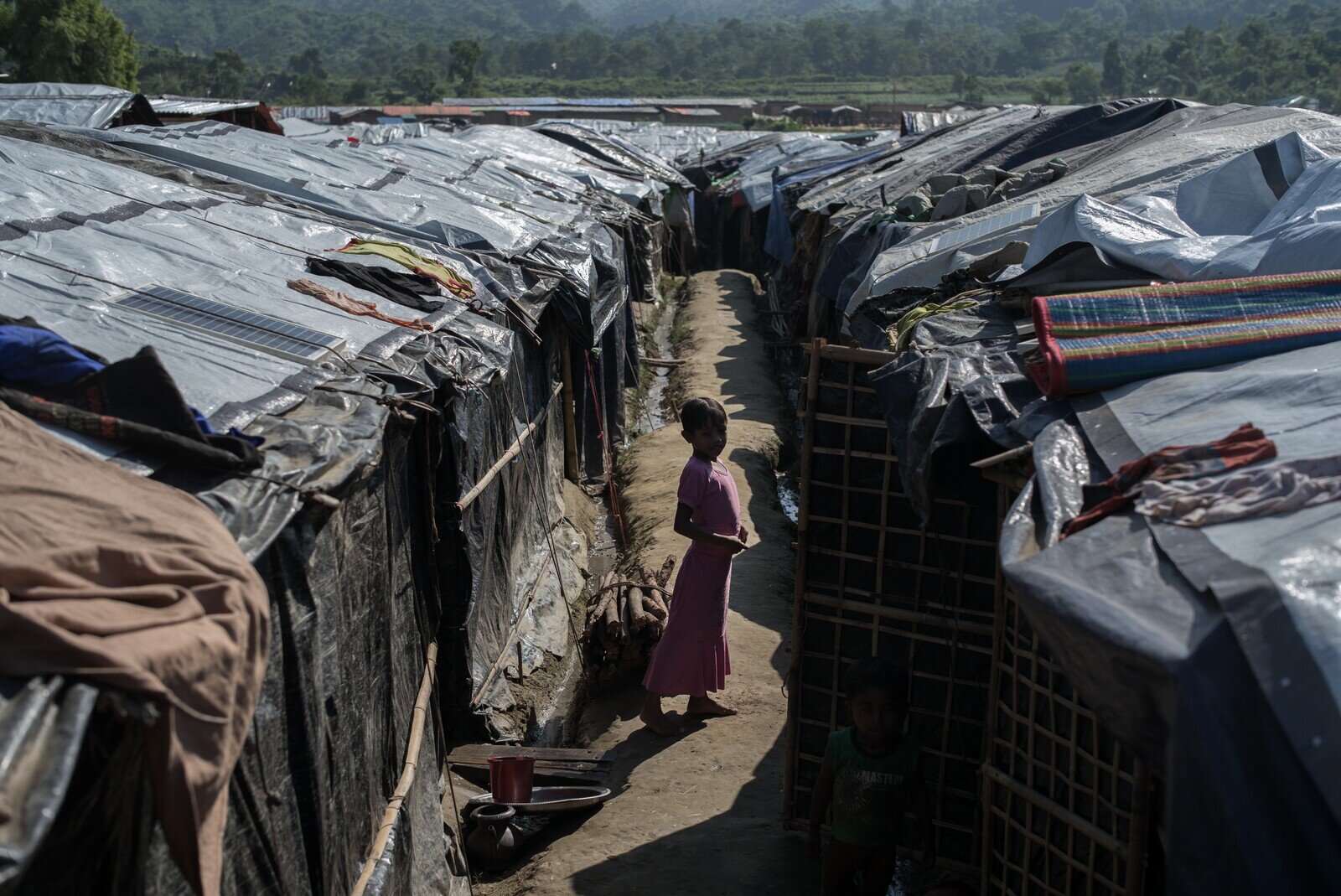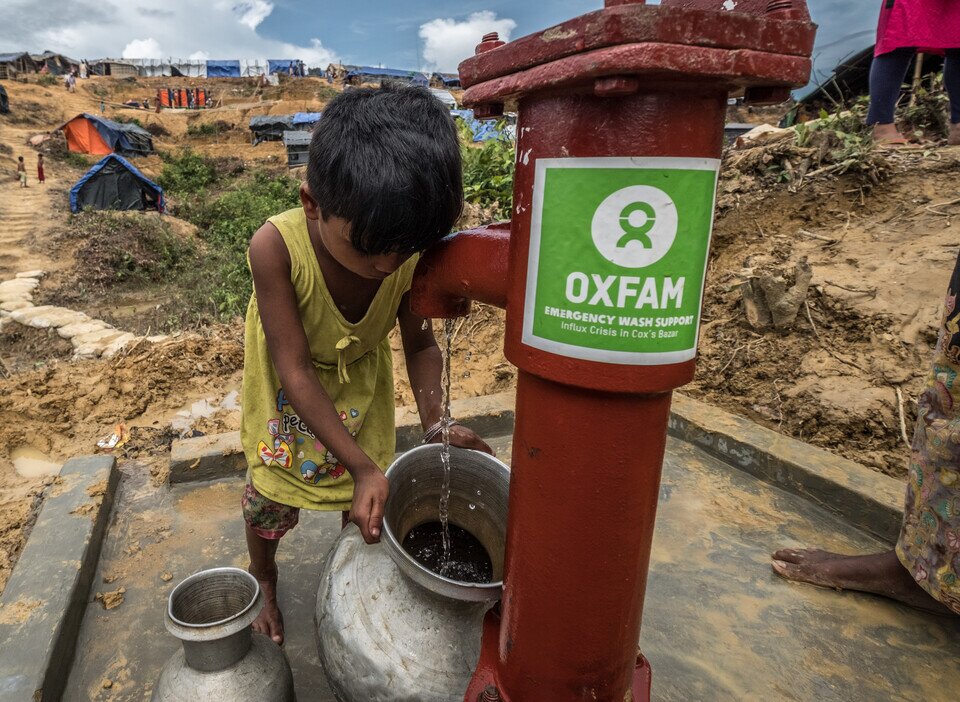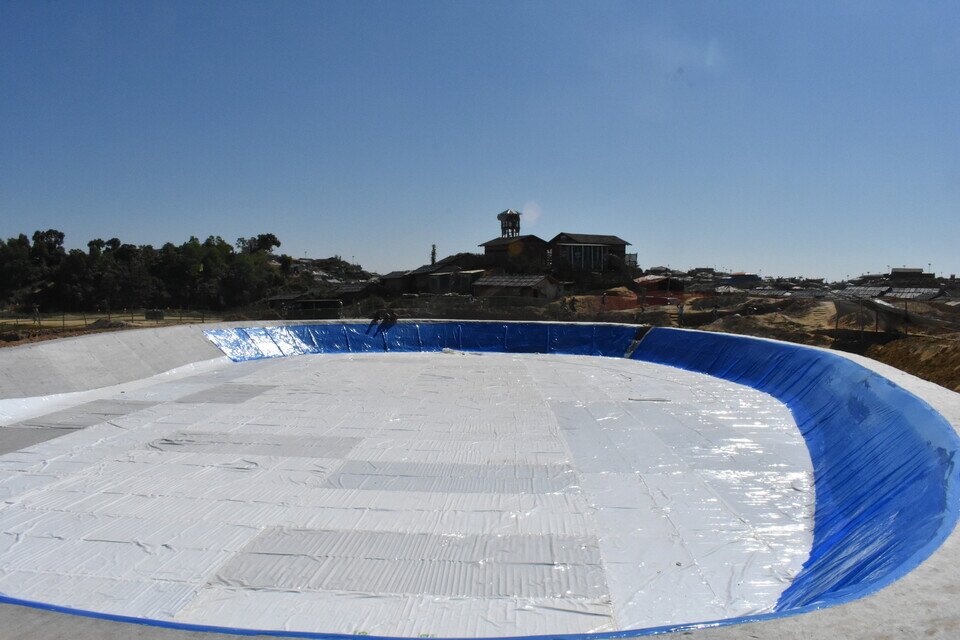2020年5月15日
Cyclone threatens Cox’s Bazar as first Covid-19 cases are confirmed (只有英文)
Almost one million Rohingya people in the world’s largest refugee camp are facing the added threat of a cyclone as the first cases of Covid-19 are confirmed, Oxfam warned today.
The cyclone, which is likely to form off the coast over the weekend, could bring further suffering and destruction to the camps on top of a potentially devastating health crisis.
Dipankar Datta, Oxfam Bangladesh Country Director said: “Our worst fears have been confirmed as the virus hits the overcrowded camps where many people are suffering from pre-existing health conditions.
“With 40,000 people crammed per square kilometre maintaining social distance is impossible. People share water and toilet facilities making it extremely challenging to maintain the strict hygiene needed. If a serious outbreak is to be avoided more prevention and containment measures – adapted to the needs of women and men – must be rapidly put in place.”
If the cyclone hits, the contamination of water sources caused by heavy rains and flooding could lead to a spike in illnesses. And any weakening of people’s immune systems will likely leave them even more vulnerable to coronavirus.
Oxfam is providing water and sanitation and promoting good hygiene practices – essential to contain the spread of the virus – to the refugees in the camps and people in the surrounding communities.
Datta said: “Every effort is being made to keep the people safe, but there are huge gaps. We need more funds to immediately ramp up hygiene, health, and protection facilities to save lives. All governments and international agencies must step in to make sure no one is left behind.
“Our frontline workers and partners are providing clean water and toilets in Cox’s Bazar, and supporting the local host community with food and hygiene kits. Since the pandemic began, Oxfam teams have been promoting awareness on hygiene, hand washing and Covid-19 prevention.”
Last week, Oxfam installed an innovative new contactless hand washing station, designed with the help of the community, to reduce the risks of Covid-19 transmission. More will be installed in the coming weeks.
Oxfam aims to raise approximately US$3 million to be able to ramp up its response in the camps. To date, less than a fifth of the UN Joint Response Plan for the Rohingya refugees has been funded.
Datta said: “While nations around the world are understandably focused on containing the spread of the pandemic among their people, it is crucial that the international community does not turn its back on at-risk populations. Special attention needs to be paid to the particular risks faced by women and girls during the Covid-19 crisis."
- End -
Notes to editors
- Oxfam is providing hygiene promotion activities and essential water and sanitiation to 173,000 Rohingya refugees in the camps and 9000 people in the host communities in Cox’s Bazar.
- Elsewhere in Bangladesh, with 23 local partners, Oxfam has reached 106,050 people in 21 districts with food, hygiene promotion and protection materials.
- There are now roughly 19,000 confirmed cases in Bangladesh– and likely many more due to limited testing capacity.
- Oxfam aims to raise approximately $3m to be able to ramp up its response in the camps.
- To date, less than a fifth of the UN Joint Response Plan for the Rohingya refugees has been funded.
In the Rohingya refugee camps in Bangladesh, there is a large risk of a devastating spread of COVID-19 in the cramped, sprawling sites. While monsoon season is approaching, rains and storms may cause major damage to the camps, further displacements, and cut of access to large parts of the camps. This could also lead to deteriorating hygiene conditions, which would put people at greater risk of infection. (Photo: Ko Chung Ming / Oxfam)
Our staff will continue to work with refugee volunteers in the camps to distribute soap and promote hygiene in the community. (Photo: Tommy Trenchard / Oxfam)
Oxfam opened the largest, ecological waste treatment plant ever built in a refugee camp last year, which is able to process the waste of 150,000 people per day. We will continue to make sure that the system functions properly to avoid overflowing latrines and water contamination. (Photo: Salahuddin Ahmed / Oxfam)



